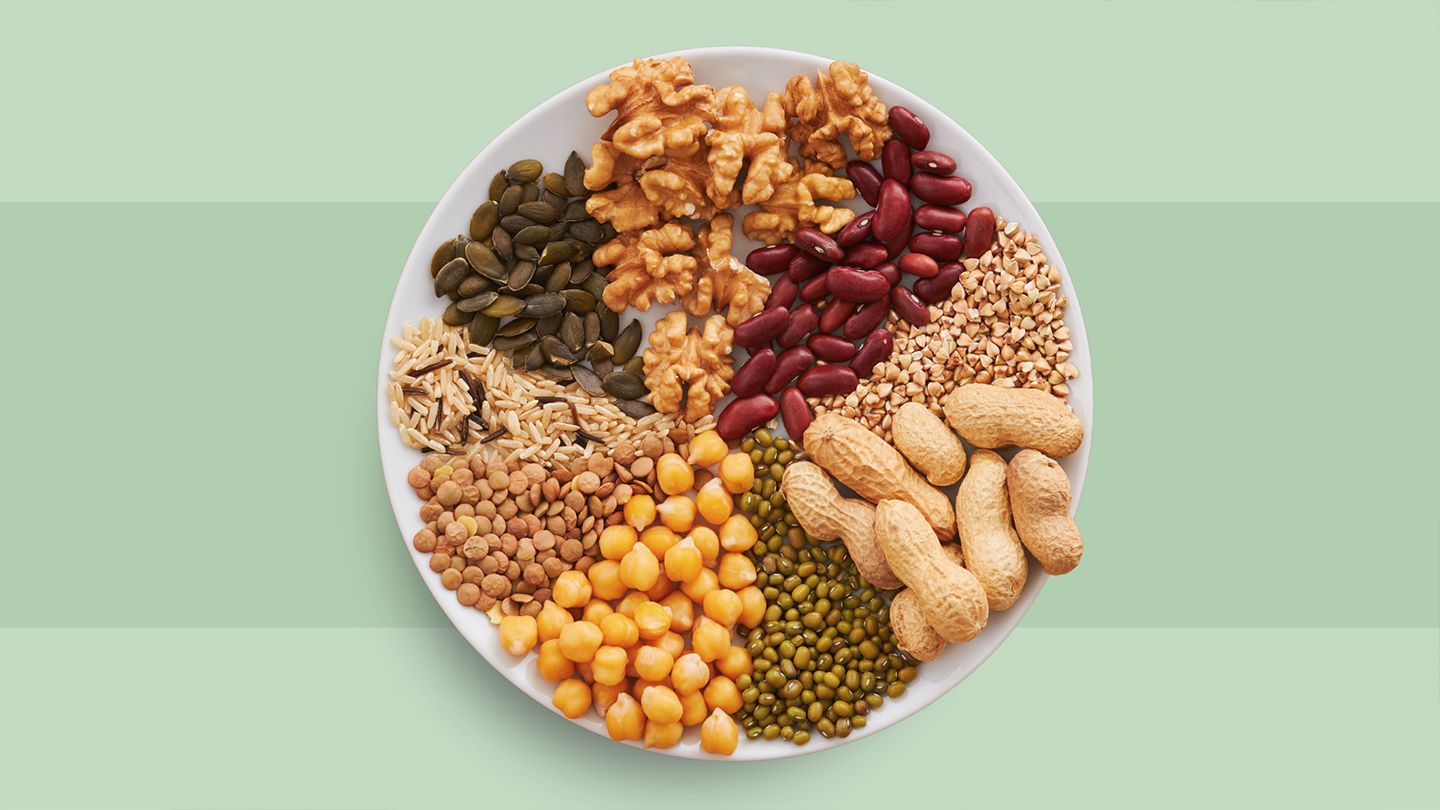
Need another reason to try eating more plant-based meals? A new study suggests that replacing animal proteins with plant-based options like nuts and beans (also called legumes) is associated with a lower risk of heart disease, type 2 diabetes, and premature death, according to study results published in BMC Medicine.
For the study, researchers examined data collected over roughly two decades on eating habits and health outcomes for hundreds of thousands of people in the United States, Europe, and Asia who participated in 37 different smaller studies. In particular, scientists wanted to see which types of dietary changes might have the biggest impact on health and longevity.
RELATED: 10 of the Best Plant-Based Sources of Protein
“A diet rich in animal foods is problematic due to the saturated fat content, which affects cholesterol levels and cardiovascular health, the way these foods are processed and prepared, and the lifestyles that often accompany this typical Western style diet,” says says Samantha Heller, RD, a clinical dietician in New York City, who wasn’t involved in the new study.
“In addition, compounds in red and processed meats increase the risk for certain cancers, dysregulate the gut microbiome, increase internal inflammation, and have been shown to increase the risk for cardiovascular disease, type 2 diabetes, cognitive decline, and death,” Heller adds.
Swapping Out Red and Processed Meats Makes the Biggest Impact
In the study, scientists looked at the benefits of swapping out various animal proteins for different plant-based options after accounting for other factors that might influence the risk of certain diseases or premature death such as smoking, drinking, consuming too many calories, or getting too little exercise.
Substitutions involving red and processed meat appeared to make the biggest difference, the study found.
For example, replacing a serving of processed meat with nuts was associated with a 21 percent lower risk of premature death from all causes.
Similarly, swapping out a serving of red or processed meat with nuts, legumes, or whole grains was linked to a 23 percent to 36 percent lower risk of heart disease. Eating nuts instead of red or processed meat was also tied to an 8 percent lower risk of type 2 diabetes.
One limitation of the analysis is that the portions varied across the smaller studies examined, making it difficult to offer guidance on specific serving sizes to consume when making dietary changes.
The Benefits of a Plant-Based Diet
The new study also wasn’t designed to prove whether or how replacing animal proteins with plant-based options might directly prevent disease or help people live longer.
However, it’s possible that eating more plant-based meals has positive health effects because these foods contain lots of fiber, fatty acids, and so-called phytochemicals that can all help reduce inflammation, improve blood pressure, lower cholesterol, and slow down weight gain, says Yang Hu, ScD, a research scientist in the department of nutrition at the Harvard T.H. Chan School of Public Health in Boston. There’s also a good reason that red meat in particular might be a good type of animal protein to replace.
“Red meat has been known to be very harmful for cardiovascular health due to its high contents of saturated fat, cholesterol, heme iron, sodium, and nitrate/nitrite, so reducing red meat intake while increasing same amounts of healthy plant-based foods would definitely convey greater health benefits on cardiovascular health,” says Dr. Hu, who wasn’t involved in the new study.
If a major diet overhaul feels too daunting to attempt, it can be a good start to try replacing red and processed meat with healthier animal protein sources like poultry and seafood, Hu advises. “Poultry consumption is less associated with chronic diseases and fish is a very good source to obtain omega-3 fatty acids that are widely known for cardioprotective effects,” Hu says.
Even just limiting cold cuts and deli meats can help, says Maya Vadiveloo, PhD, RD, an associate professor of nutrition at the University of Rhode Island in Kingston, who wasn’t involved in the new study. “I think the most beneficial meat to substitute is processed meat (including deli meat), as there is strong evidence that processed meats increase cardiovascular disease, cancer, and diabetes risk.”
